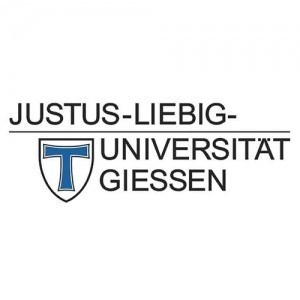Photos of university / #humboldt.uni
Understanding the Geography of Global Change
Humanity has become the major driver of regional and global change in the Anthropocene. While we face planetary constraints regarding resources, climate, and ecological resilience, rapid transformations are taking place on both local and planetary scales. The MSc Global Change Geography at Humboldt-Universität aims to provide a broad understanding of these processes from a perspective of physical geography.
Master's students of the MSc Global Change Geography will gain profound knowledge of current research questions, approaches, and insights regarding the interactions between the environment and society in the context of global change. Furthermore, the programme aims at providing knowledge about scientific methods and findings from physical geography, particularly biogeography, climatology, hydrology, remote sensing, sustainability sciences, and geoinformation science. Students learn to integrate scientific theories, findings, and procedures in order to analyse and model human-environmental systems. In addition, a major goal of the programme is the specialisation of scientific key skills, including scientific writing and presenting, the analysis of primary literature, and special language skills in English. The skills for dealing with questions of global change and sustainable transformation are developed by applying a wide range of teaching and assessment modes such as classical classroom teaching, virtual lessons, research guided project work, intense research seminars, and field work.
Humanity has become the major driver of regional and global change in the Anthropocene. While we face planetary constraints regarding resources, climate, and ecological resilience, rapid transformations are taking place on both local and planetary scales. The MSc Global Change Geography at Humboldt-Universität aims to provide a broad understanding of these processes from a perspective of physical geography.
Master's students of the MSc Global Change Geography will gain profound knowledge of current research questions, approaches, and insights regarding the interactions between the environment and society in the context of global change. Furthermore, the programme aims at providing knowledge about scientific methods and findings from physical geography, particularly biogeography, climatology, hydrology, remote sensing, sustainability sciences, and geoinformation science. Students learn to integrate scientific theories, findings, and procedures in order to analyse and model human-environmental systems. In addition, a major goal of the programme is the specialisation of scientific key skills, including scientific writing and presenting, the analysis of primary literature, and special language skills in English. The skills for dealing with questions of global change and sustainable transformation are developed by applying a wide range of teaching and assessment modes such as classical classroom teaching, virtual lessons, research guided project work, intense research seminars, and field work.
Educational organisation
The MSc Global Change Geography is a two-year Master's programme. Year one consists of compulsory and elective modules. The modular structure of year two, consisting of flexible and research-oriented specialisation modules, enables students to tailor the programme around individual interests and career goals. All courses are taught in English.Study abroad unit(s)
It is recommended that students study abroad during the third semester. A wide range of ERASMUS cooperation agreements exist.Forms of assessment
Written and oral exams, reports, homework assignments, Master's thesis (30 ECTS)Course objectives
The study programme qualifies students for a wide range of professional fields, such as employment in science, planning, consultancy, nature conservation, development cooperation, specialised media, and international organisations.Language requirements
English Level B2 (European framework) or equivalentWays to prove English language skills:
- International English Language Testing System (IELTS): 5
- Cambridge First Certificate in English (FCE): A-C
- ETS Test of English as a Foreign Language (TOEFL):
- Internet-based Test: 87
- Paper-based Test: 560
- HU-Leistungsnachweis Stufe UNIcert® II: 2.7
- Test of English for International Communication TOEIC: 785
- DAAD-Sprachzeugnis: minimum C in all areas
For more information (especially for German applicants), please refer to the "Fächerübergreifende Satzung zur Regelung von Zulassung, Studium und Prüfung der Humboldt-Universität zu Berlin (ZSP-HU)" and to http://hu.berlin/apply.
Academic requirements
Bachelor's degree in geography (ideally physical geography) or a related subject, e.g. environmental sciences, geo-ecology, landscape ecologyFor details, please refer to: https://www.hu-berlin.de/de/studium/beratung/faecheruebergreifende-satzung-zur-regelung-von-zulassung-studium-und-pruefung-zsp-hu-lesefassung/view
Want to improve your English level for admission?
Prepare for the program requirements with English Online by the British Council.
- ✔️ Flexible study schedule
- ✔️ Experienced teachers
- ✔️ Certificate upon completion
📘 Recommended for students with an IELTS level of 6.0 or below.











